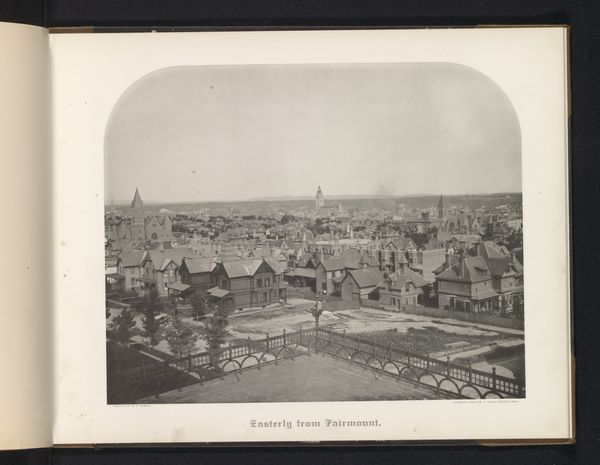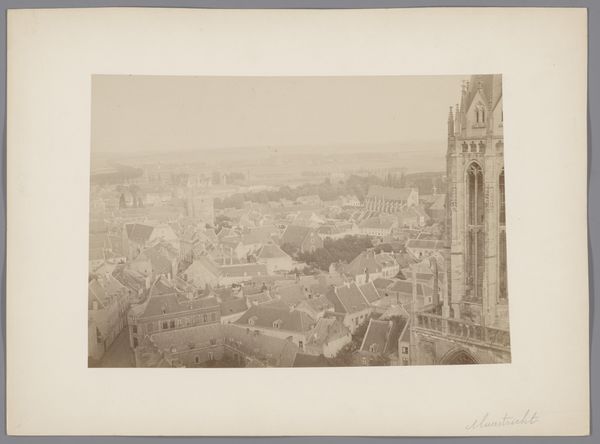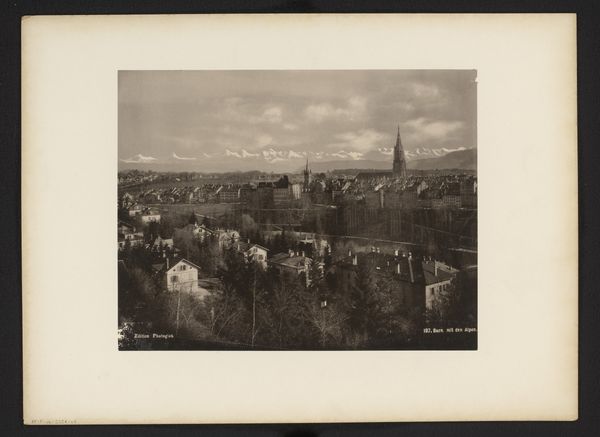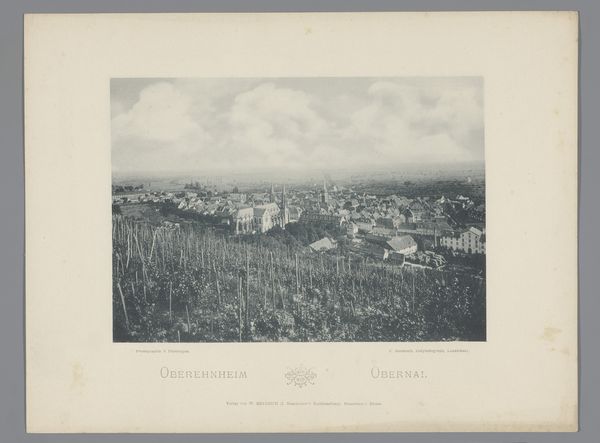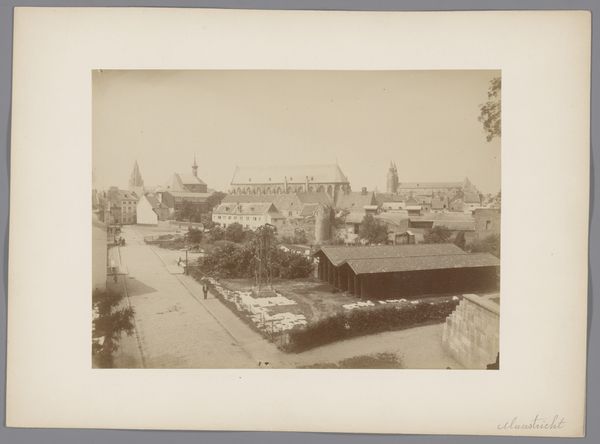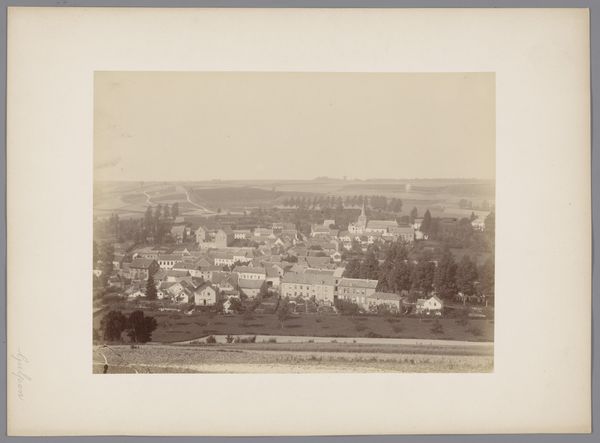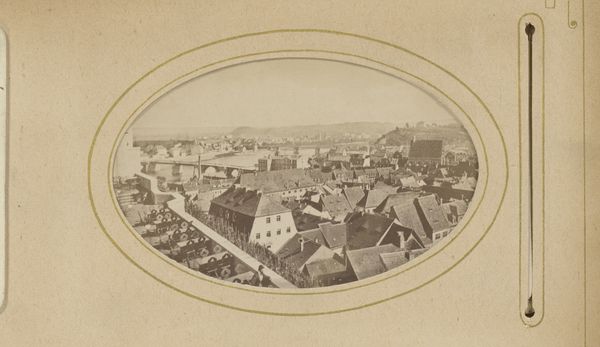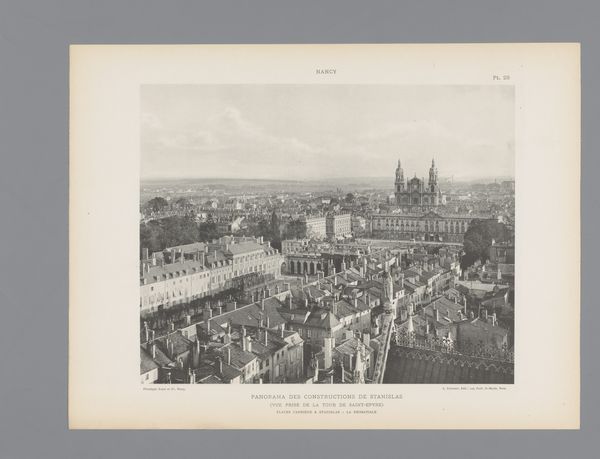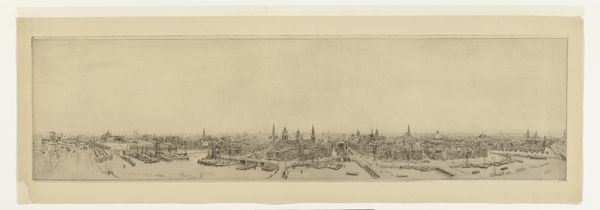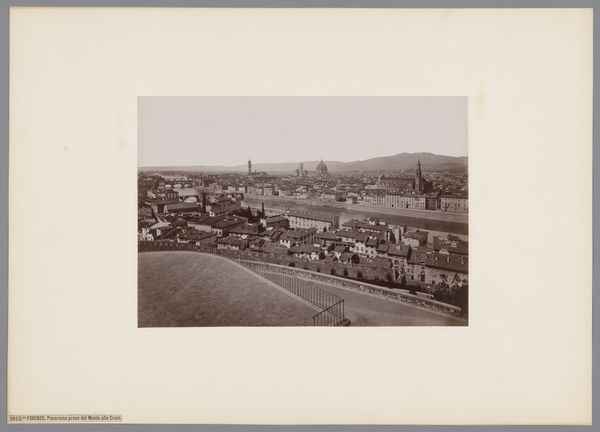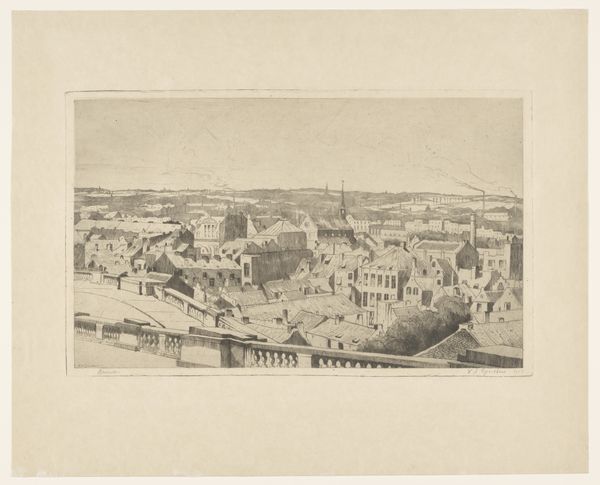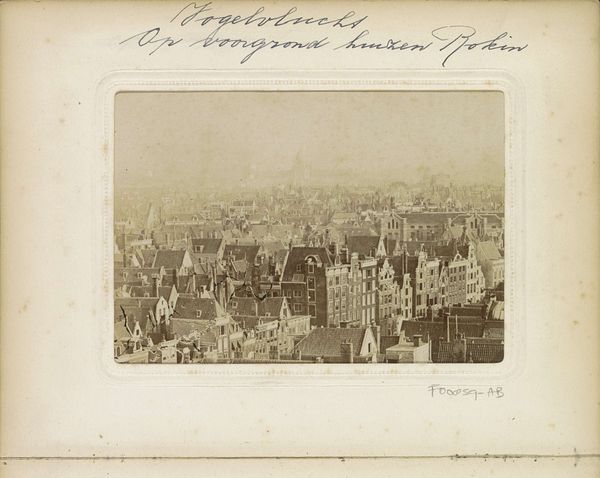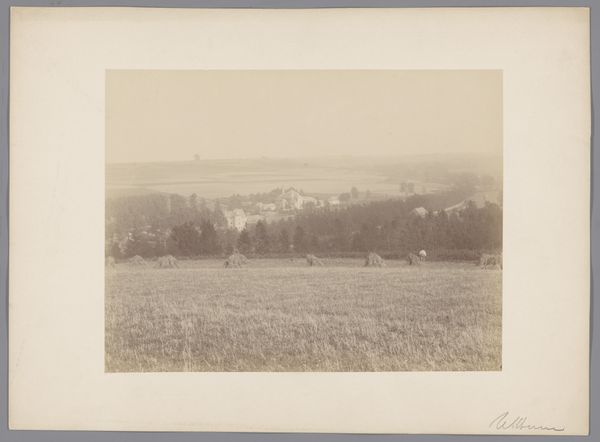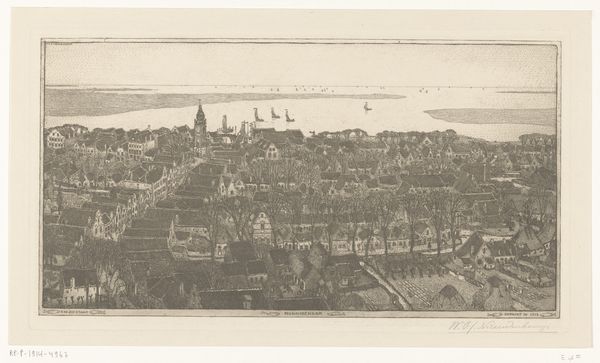
Dimensions: height 170 mm, width 239 mm
Copyright: Rijks Museum: Open Domain
This albumen print of Maastricht, including its town hall, was produced anonymously in the nineteenth century. This photographic process was a cutting-edge technology at the time, its creation hinging on new developments in chemistry. Albumen, derived from egg whites, was coated on paper, fixing the light-sensitive silver salts that create the image. The appeal of photography stemmed from its apparent realism, and the idea that the camera could capture a scene without intervention. This was, of course, an illusion. Each print required many hands and careful orchestration. From the photographer deciding where to point the lens, to the invisible workers producing the raw materials, to the darkroom technicians ensuring the final image was clear, this view of Maastricht is actually the result of many forms of labor. Considering the social context of its making allows us to go beyond a mere appreciation of its aesthetic qualities, and understand it as a product of complex networks of labor and production.
Comments
No comments
Be the first to comment and join the conversation on the ultimate creative platform.
